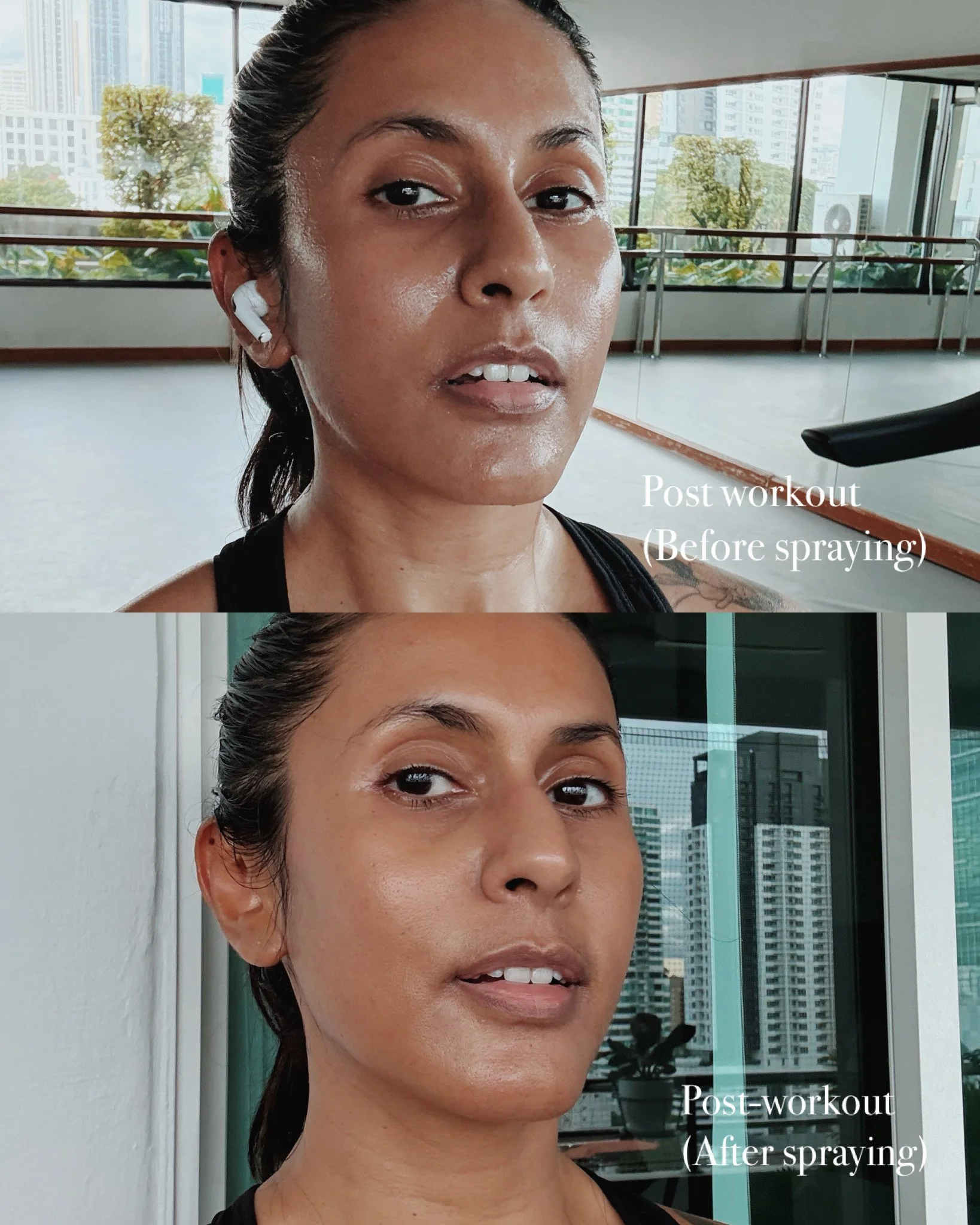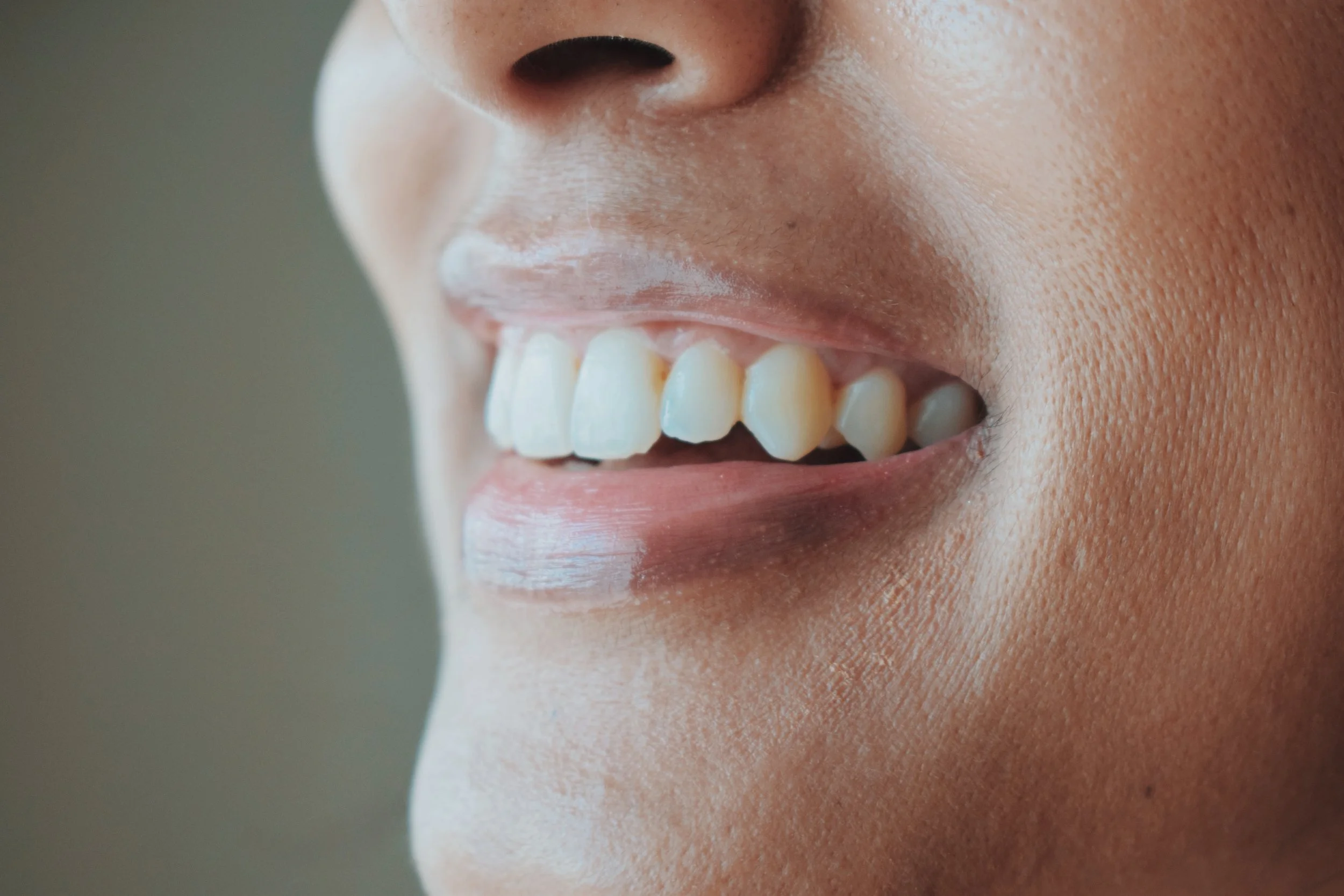Hypochlorous Acid in Skincare: What It Does and Doesn’t Do
Hypochlorous acid is having a moment in skincare, but is it actually worth the hype? Learn what it does, who it's for, and how to use it.
In today’s edition of skincare that sounds like science homework, we’re talking about hypochlorous acid.
If you spend enough time on skincare social (guilty), you've probably heard a lot about this buzzy little ingredient. The name doesn’t exactly scream “hydration and healing”, and yet, here we are.
Hypochlorous acid is having a moment. Dermatologists are recommending it post-laser, TikTokers are misting it like it’s miracle water, and every brand with a barrier-supporting agenda is jumping on board. Naturally, I had questions. Is this just glorified pool water in chic packaging? Or does it actually deserve a spot in our routines? I decided to dig into the science, the claims, and my own experience with hypochlorous acid to figure it out.
What Is Hypochlorous Acid?
Let’s get the science-y bit out of the way first (I promise I’ll keep it short).
Hypochlorous acid (HOCl) is a molecule your own body makes as part of your immune response. It's produced by white blood cells to fight off bacteria, reduce inflammation, and help wounds heal. Scientists figured out how to bottle it in a stable form—and suddenly, we had a skincare ingredient that mimics your body’s own natural defense system by providing:
Antibacterial Power HOCl can help neutralize acne-causing bacteria without the irritation of harsh actives like benzoyl peroxide.
Relief From Redness & Irritation Because it’s anti-inflammatory, it’s great for reactive skin. If your face feels warm, flushed, or sensitive, this can help calm it down.
Barrier-Safe Support If your skin’s been through it—over-exfoliating, too many actives, stress—this can help bring things back into balance.
Post-Treatment Recovery Got a facial, laser treatment, or microneedling appointment? HOCl is commonly used to reduce downtime and help healing.
Why Is It Trending Now?
In my opinion, the answer is simple: timing.
As more people focus on repairing their skin barriers and stepping away from aggressive actives, simpler ingredients like HOCl that offer support without irritation have naturally started to rise in popularity. It also helps that:
It’s easy to use. You just spritz and go.
It’s gentle and plays well with other skincare.
It can help with fungal acne (which has suddenly become a huge deal on social media)
And it actually has science behind it, especially for wound healing, acne, and inflammatory skin conditions.
What really caught my attention, though, was how many people were using it for completely different things: calming acne, reducing redness, sanitizing post-makeup removal, even spraying it on their sheets and pillow covers to sanitize them before bed. That kind of versatility is rare in skincare.
The Many Ways in Which Hypochlorous Acid Can Be Used
One of the reasons hypochlorous acid is having a moment is because it’s surprisingly flexible. Unlike many skincare actives that come with a “use it only at night,” “avoid layering,” or “don’t mix with XYZ” warning label, HOCl is extremely adaptable. In fact, there are many different ways you could and should be using HOCl, depending on what your skin needs.
1. As a soothing toner or prep mist
HOCl is often used like a toner or mist right after washing your face. It can help reduce redness, soothe sensitivity, and create a clean slate for the rest of your routine, especially useful for those with reactive or acne-prone skin.
2. To calm breakouts and flare-ups
Because of its antibacterial and anti-inflammatory properties, HOCl can be helpful when you're dealing with active acne or even just angry red spots. A couple of spritzes through the day when your skin starts feeling a little itchy or irritated can reduce swelling and help your skin feel less angry. Just remember to reapply your sunscreen after you spray.
3. Post-procedure recovery
Many professionals recommend hypochlorous acid after in-clinic procedures like microneedling, chemical peels, or laser treatments. It’s gentle enough for compromised skin and may help minimize the risk of infection or irritation during the healing process. If you're someone who loves an in-clinic treatment but dreads the redness after, this might be a good product to try.
4. Post-workout (or any sweaty activity)
One of the most popular use cases for hypochlorous acid on social media is as a post-workout spray. A few mists can help kill any bacteria that may be starting to build up from the sweating, and prevent acne from flaring up. A little HOCl can even be a nice refresh for your skin mid-day if you’re in a polluted, hot or humid environment where you’re likely to sweat a lot. It’s gentle enough to layer over makeup, and it won’t clog pores. Try not to use it more than 2-3 times a day, and again, remember to refresh your sunscreen every time you use it.
5. On irritated body skin
You don’t have to stop at your face. HOCl is often used on body breakouts, bug bites, underarm irritation from shaving or deodorant, and even eczema patches. It’s basically a gentle alternative for any skin that’s stressed out or acting up.
6. On your sheets and pillow cases
I haven’t personally used hypochlorous acid to disinfect my sheets (I try and change them every week instead), but I have seen a lot of people misting their bed linens to freshen them up and avoid any bacteria build-up that may transfer to the skin.
How I Use HOCl in My Own Routine
Personally, I gave hypochlorous acid a shot, and while it’s a nice ingredient, I also found it to be a very basic one. I didn’t see the need to give it a permanent place in my skincare routine, especially since I already use other hydrating and barrier supporting ingredients.
However, that doesn’t mean I never use it. I find these kinds of facial sprays extremely convenient and useful for:
Post-exercise, to calm down flushed skin and prevent bacteria build-up from the sweat (the image above shows how it instantly calms down red, heated skin after a workout)
When I’m out and about in the city, it’s a great way to detox on the go when I’m facing pollution, heat and humidity head on
While traveling, when my skin is more likely to be exposed to the elements and prone to breakouts
Who Will Love HOCl (And Who Might Not)
While I personally use HOCl only as required, there are some skin types and skin conditions for which I’d recommend this ingredient as a staple.
HOCl can be good for you if:
You have sensitive or reactive skin
You struggle with redness or mild breakouts
You’ve tried using strong actives and prefer something calming instead
You want something simple and barrier-safe post-laser, peels, or other in-clinic treatments
You probably don’t need HOCl if:
Your skin can tolerate strong acne fighting actives like exfoliating acids, retinoids or benzoyl peroxide
You already incorporate other hydrating and/or barrier supporting ingredients like humectants and ceramides in your routine
You’re looking for quick results and want additional anti-aging or brightening benefits
A Few Products I Like
If you are looking to try out a hypochlorous acid spray, some of the most popular ones on the market right now are:
Tower 28 SOS Daily Rescue Facial Spray The OG brand to bring HOCl into the mainstream, probably the most popular mist right now (although a little on the pricey side)
Briotech Topical Skin Spray A no-frills, straightforward HOCl mist that’s affordable, gentle and simple
Prequel Universal Skin Solution A formula with a little more oomph, this spray combines HOCl with a soothing mineral concentrate. Great if you’re reactive but want hydration too.
Dewyhour Hypochlorous Acid Soothing Protective Spray Super affordable spray that combines hypochlorous acid with hyaluronic acid for a truly hydrating formula
Full disclosure: I do make a small commission if you buy anything from these links, so do consider supporting this blog if you found this article helpful
Final Thoughts: Is It Worth the Hype?
Well, that depends on what you’re looking for.
For me, it’s one of those “good to have on hand” products. Like a skincare first-aid spray. Not essential every day, but absolutely clutch when things go wrong.
It’s not the kind of ingredient to give you dramatic glass skin overnight or make dark spots disappear. But if you’re looking for something to calm, protect, and support your skin (especially when it’s going through it), hypochlorous acid might just be worth your time.
About The Skinimalist
Hi, I’m Mal, a 30-something recovering skincare addict, and this is my blog. A space where I attempt to de-influence you from chasing trends and buying more skincare products you may not need.







Struggling with hyperpigmentation? Let’s break down the most effective brightening ingredients—like vitamin C, azelaic acid, glutathione, and more—plus tips on choosing the right ones for your skin